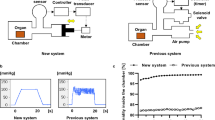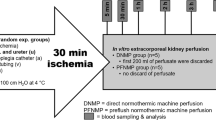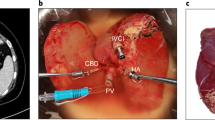Abstract
THE preservation of cadaver donor kidneys is becoming an important aspect of transplantation, and we recently developed a system which seemed to provide preservation of canine kidneys for up to 3 days with satisfactory subsequent function. The method consisted essentially of continuous perfusion with a homologous plasma per-fusate combined with hypothermia at 10° C, a pulsatile pump and a membrane oxygenator1. One of the principal difficulties in perfusing isolated organs, such as the kidney, with plasma or blood at hypothermic temperatures is the development of a steady rise in perfusion pressure within a few hours, accompanied by a fall-off in flow rate, marked oedema and increase in weight of the organ, and a degree of cellular damage incompatible with subsequent functional recovery. Until recently the cause remained obscure, but evidence is now available which indicates a possible aetiology.
This is a preview of subscription content, access via your institution
Access options
Subscribe to this journal
Receive 51 print issues and online access
$199.00 per year
only $3.90 per issue
Buy this article
- Purchase on Springer Link
- Instant access to full article PDF
Prices may be subject to local taxes which are calculated during checkout
Similar content being viewed by others
References
Belzer, F. O., Ashby, B. S., and Dunphy, J. E., Lancet, ii, 536 (1967).
Author information
Authors and Affiliations
Rights and permissions
About this article
Cite this article
ASHBY, B., BELZER, F. Perfusion Pressure in Kidney Preservation. Nature 220, 794–795 (1968). https://doi.org/10.1038/220794a0
Received:
Issue Date:
DOI: https://doi.org/10.1038/220794a0
Comments
By submitting a comment you agree to abide by our Terms and Community Guidelines. If you find something abusive or that does not comply with our terms or guidelines please flag it as inappropriate.



